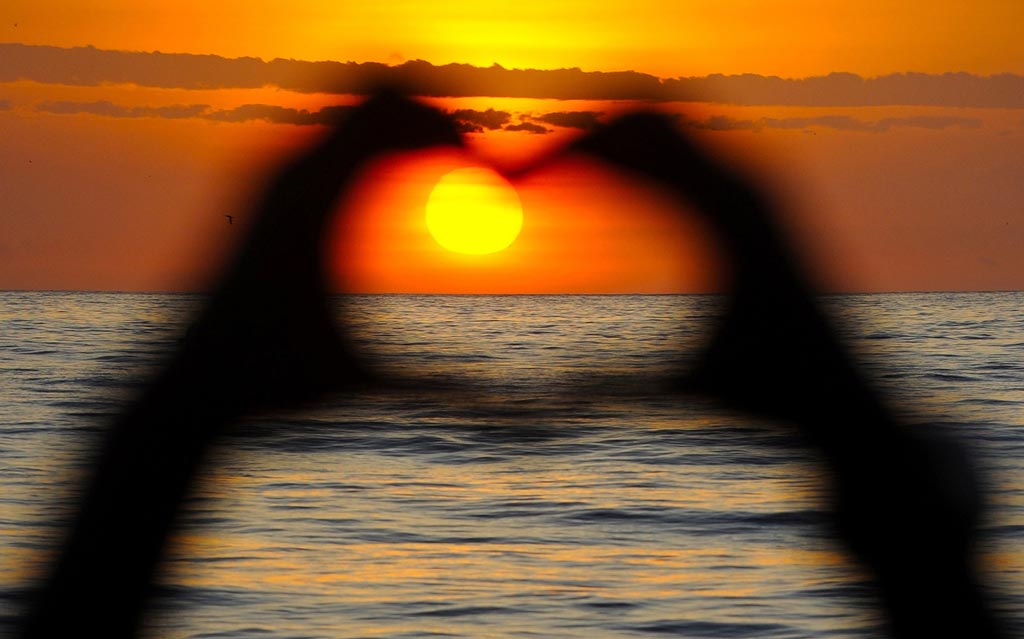Plant Survivors
 Things are looking bleak out here and we haven’t even mentioned global warming!
Things are looking bleak out here and we haven’t even mentioned global warming!
But are we being fair? Is the sun really so bad and are our bodies really so ill equip to deal with our daily dose? And what about Vitamin D? To answer some of these questions we decided to look at plants – after all, I have never seen a cactus reach out for the factor 30. What do they have that we don’t?
When I mention the cactus, I automatically think of those huge, western style plants but the truth is that cactus come in all shapes and sizes. They belong to the succulent family and while some are adapted to the arid deserts of Arizona, others are more at home in more temperate climates. Try planting a mountain-dwelling cactus in the desert and it will get a sunburn. Take a desert-dwelling cactus to the rainforest and it will get foot rot! It seems that people and plants are not so different.
Desert-dwelling cacti have evolved to deal with the sun’s full force. They have no leaves to preserve water and use hairs, spines and sometimes wax to protect them from the sun. So, it would seem that plants do indeed wear sunscreen.
The problem that people have is our desire to explore. We invented boats, trains then planes to take us everywhere. While this traveling has proved to be of great benefit to humankind, it has contributed to our sun-hate relationship!
Take me for example. I have a skin type of 1 according to the Fitzpatrick scale – just call me burney! I chose to move to Australia with my family some years ago and while the intensity of the sun did lead me to think “is this wise for someone so melanin deficient?” I, along with my equally white family, decided to come anyway. Now if I were a plant I would have shriveled and died by now without lots of care, but as a person, I have managed to live in near perfect harmony with the sun until now. But that comes with strings attached.
My skin is perfectly adapted to the place that I came from. I am not sure exactly where that is as us Europeans had a liking for cross border travel but let us say that I am more Anglo-Saxon than Greek or Roman.
Fair skin is quite useful in dark and gloomy England. There is no need to go to the trouble of making lots of melanin, as there is a very little sun to protect against. In addition to sun protection, a study by anthropologist Nina Jablonski showed that skin color is important in vitamin synthesis. For your body to make vitamin D, a vitamin that helps the body to absorb calcium, the skin needs the sun.
Best Sunscreen
 Light skin seemed to have been developed to enable the body to synthesize vitamin D even when there is only low level of UV light. The darker the skin, the more sun is required to make the vitamin D. This is one reason why darker skinned people living in cooler, darker climates can be at risk of having low Vitamin D levels.
Light skin seemed to have been developed to enable the body to synthesize vitamin D even when there is only low level of UV light. The darker the skin, the more sun is required to make the vitamin D. This is one reason why darker skinned people living in cooler, darker climates can be at risk of having low Vitamin D levels.
Vitamin D is not the only vitamin to have a sun relationship. Jablonski also showed that foliate can be broken down by too much sun. This may be the main reason why people living nearer the equator developed darker skin – especially as it has been found that you can’t overdose on vitamin D! Foliate is required for neural development and UV radiation has been found to reduce foliate levels in the body.
So, finding myself in a hot, dry climate where the Sun’s rays are intense leaves me with a problem. My skin is not adapted to this environment. I need help! It seems that the sun is not the problem. The problem is me. Of course, those of us who are lucky enough to have a passport reserve our right to travel and make our home base wherever we choose. I have no intention from my new homeland and I doubt that I can get my skin to evolve any quicker by frying it. Therefore, I have to be sensible.
People often ask me “what is the best sunscreen on the market” and my gut reaction is to say “your brain”. Our bodies have been designed to work with the sun; we need the sun to keep us healthy both mentally and physically. Anyone who has visited Sweden in the winter will know the problems that Seasonal Affective Disorder brings on. Ultra-Violet light makes us tick.
There really is nothing to fear with going outside and enjoying a safe, healthy dose of sun. How much is enough? Everyone is different. We carry around the best sunscreen on the market every day – our skin. We just need to read the label and apply common sense frequently.
So, does that mean that commercial sunscreens are defunct? Of course not, but nothing is as broad spectrum and as personally prescribed as your own skin. A commercial sunscreen, however good, will still let some sunlight through. This is OK if you are paying attention and listening to your body as you enjoy your day on the beach. We run into problems when we hand over responsibility for our skin’s safety to the sun lotion. The two need to be used together.
A good broad-spectrum sunscreen and some behavior modification will ensure that going outside is not only safe, it is fun and life-affirming. As for the immunosuppressant – nothing suppresses the immune system faster than a depressed person who is depriving their bodies of the good things that nature has to offer and that includes the sun. Come outside.
Editor’s Note:
Mercy of Allah
Allah has provided us with very efficient systems for regulating our internal temperature, automatically maintaining a stable core body temperature in cold winters, warm summers, and wild swings between both extremes.
In hot weather, if the core body temperature rises to 40.6-41.7°C, hyperthermia occurs. This condition can be fatal within only a few days, due to internal organs deteriorating.
Though, Allah has also designed our bodies to protectively respond to heat. Radiation is responsible for reducing most excess body heat; but in hot, dry climates, evaporative cooling, or sweating, can be significantly more helpful.
Allah says in Qur’an that He created the sun which revolves round the earth. The sun as well as the all creatures praise Him. He also says that He created it for the benefit of all beings to provide them with light and warm. It is contrary to scientific logic which is of the view that the earth revolves round the sun as the all creatures praise Him.
This article was written in collaboration with Dr. Gavin Greenoak, Managing and Scientific Director of the Australian Photobiology Testing Facility, at the University of Sydney, Australia.